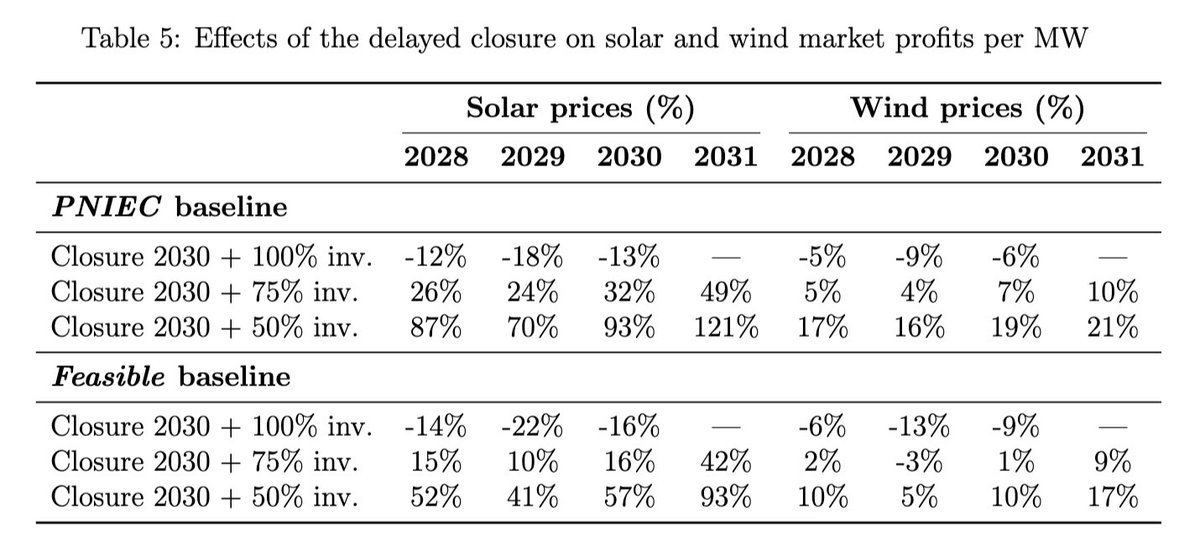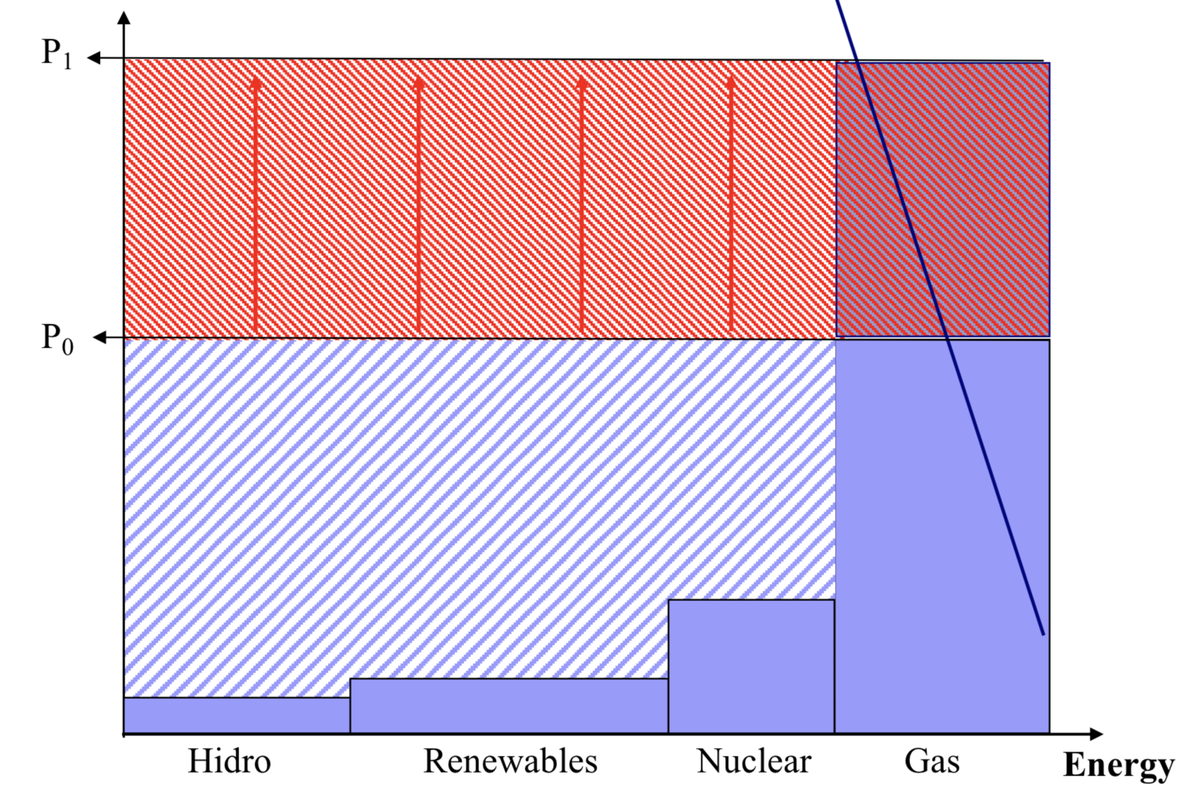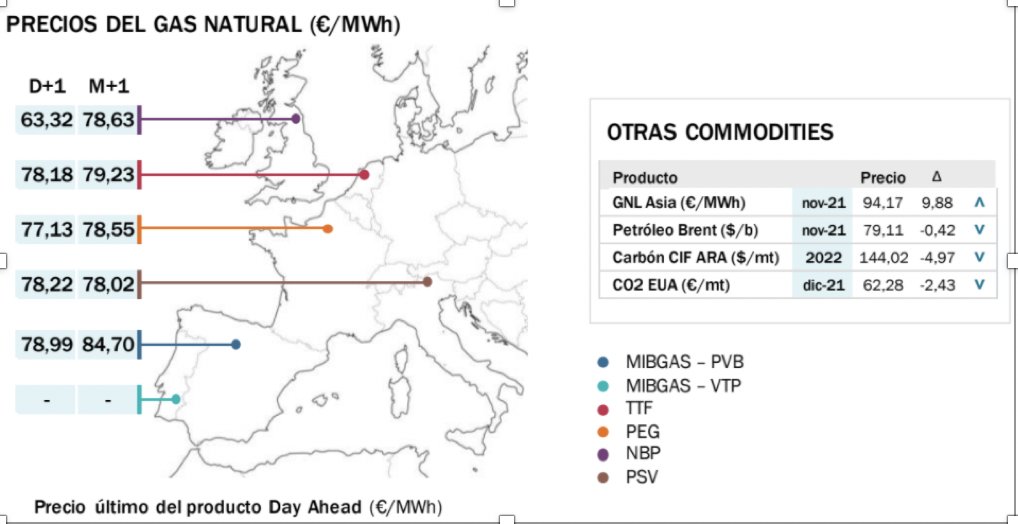My contribution to the #electricity market debate, today at @voxeu
Thread 🧵
cepr.org/voxeu/columns/…
Thread 🧵
cepr.org/voxeu/columns/…
1/Von der Leyen “Current electricity market design is not doing justice to consumers They should reap the benefits of lowcost renewables We will do a deep and comprehensive reform of electricity markets”
politico.eu/article/ursula…
Which should be the building blocks of the reform?
politico.eu/article/ursula…
Which should be the building blocks of the reform?
2/ On the objectives:
➡️*Productive efficiency*: demand must be met by the plants with the lowest marginal costs 📉📈
➡️*Investment efficiency*: investments must take place at the right scale, mix, and locations 🌞🍃
➡️*Equity*: prices should be cost-reflective 🪙
➡️*Productive efficiency*: demand must be met by the plants with the lowest marginal costs 📉📈
➡️*Investment efficiency*: investments must take place at the right scale, mix, and locations 🌞🍃
➡️*Equity*: prices should be cost-reflective 🪙
3/On the tools:
Combine #short-term energy markets (1⃣) with regulator-backed #long-term contracts (2⃣)
1⃣ provide short-run signals for efficient generation + consumption
2⃣facilitate efficient investments while adjusting profitability through #competitive forces
Combine #short-term energy markets (1⃣) with regulator-backed #long-term contracts (2⃣)
1⃣ provide short-run signals for efficient generation + consumption
2⃣facilitate efficient investments while adjusting profitability through #competitive forces

4/ *A well-functioning #short-term market*
📢 We should preserve short-run electricity markets but improve their performance through increased #transparency + #liquidity
➡️ Compulsory participation (as original UK design), participants allowed to enter into financial contracts
📢 We should preserve short-run electricity markets but improve their performance through increased #transparency + #liquidity
➡️ Compulsory participation (as original UK design), participants allowed to enter into financial contracts
5/ *Efficient and equitable long-term contracts for all consumers*
Highly capital-intensive and long-lived assets + various externalities imply that:
➡️Long-term efficiency requires some form of #long-run contracting
➡️#Regulators must play an active role in promoting investments
Highly capital-intensive and long-lived assets + various externalities imply that:
➡️Long-term efficiency requires some form of #long-run contracting
➡️#Regulators must play an active role in promoting investments
6/ Benefits of long-term contracts:
➡️ #Derisking the investments -> cheaper #capital 🪙+ more competitors🧑🏭
➡️ #Competition for these contracts through #auctions would pass on this efficiency gain to #consumers in the form of lower prices 👨👨👧👦
➡️ #Derisking the investments -> cheaper #capital 🪙+ more competitors🧑🏭
➡️ #Competition for these contracts through #auctions would pass on this efficiency gain to #consumers in the form of lower prices 👨👨👧👦
7/ An important economic #principle should be kept in mind throughout:
*Exposing producers to short-run price signals (whenever desirable) is compatible with decoupling their average payments from those prices*
➡️This can be achieved through *Contracts-for-Differences* (CfD)
*Exposing producers to short-run price signals (whenever desirable) is compatible with decoupling their average payments from those prices*
➡️This can be achieved through *Contracts-for-Differences* (CfD)
8/ Under a CfD, producers sell at the short-term price (p) and pay/receive the difference between a ‘reference price’ (p’) and the contract’s strike price (f)
➡️They keep the difference (p-p’) -> exposed to short-run prices
➡️Choosing f adequately allows adjusting profitability
➡️They keep the difference (p-p’) -> exposed to short-run prices
➡️Choosing f adequately allows adjusting profitability

9/ Contract design should differ across technologies depending on their flexibility to respond to short-run price signals:
➡️Full-price exposure important for storable resources 🌊
➡️Exposing wind or solar plants to short-run prices brings limited benefits 🌞🍃
➡️Full-price exposure important for storable resources 🌊
➡️Exposing wind or solar plants to short-run prices brings limited benefits 🌞🍃
10/ For #hydro and #nuclear power plants, setting the ‘reference price’ at the annual average market price effectively provides a #bonus for producing at peak times or a #penalty for producing at off-peak times, contributing to an efficient operation 

11/ For existing plants competition to enter the market is not possible:
➡️ Instead, set technology-specific caps or strike prices in a cost-reflective manner
📢Political will required
Not addressing the economic + social consequences of windfall profits is no less challenging!
➡️ Instead, set technology-specific caps or strike prices in a cost-reflective manner
📢Political will required
Not addressing the economic + social consequences of windfall profits is no less challenging!
12/ Regulators should be the counterparty of the long-run contracts:
➡️Bilateral contracts (PPAs) are #scarce and too #short and only benefit those with strong bargaining power 🫵
➡️Counterparty risk is lower under regulator-back contracts, to the benefit of #all consumers 👨👨👧👦
➡️Bilateral contracts (PPAs) are #scarce and too #short and only benefit those with strong bargaining power 🫵
➡️Counterparty risk is lower under regulator-back contracts, to the benefit of #all consumers 👨👨👧👦
13/ Changing the electricity market design without significantly affecting the outcomes would be a lost opportunity
Watch out 📢: The risk of "Plus ça change, plus c’est la même chose"…is not negligible
Watch out 📢: The risk of "Plus ça change, plus c’est la même chose"…is not negligible
14/ We cannot miss this #opportunity to redesign our #electricity markets to make them more #robust to the current and future energy crises while simultaneously achieving carbon #abatement goals 🌞🍃🌊 at least cost for consumers and #society 👨👨👧👦
• • •
Missing some Tweet in this thread? You can try to
force a refresh















